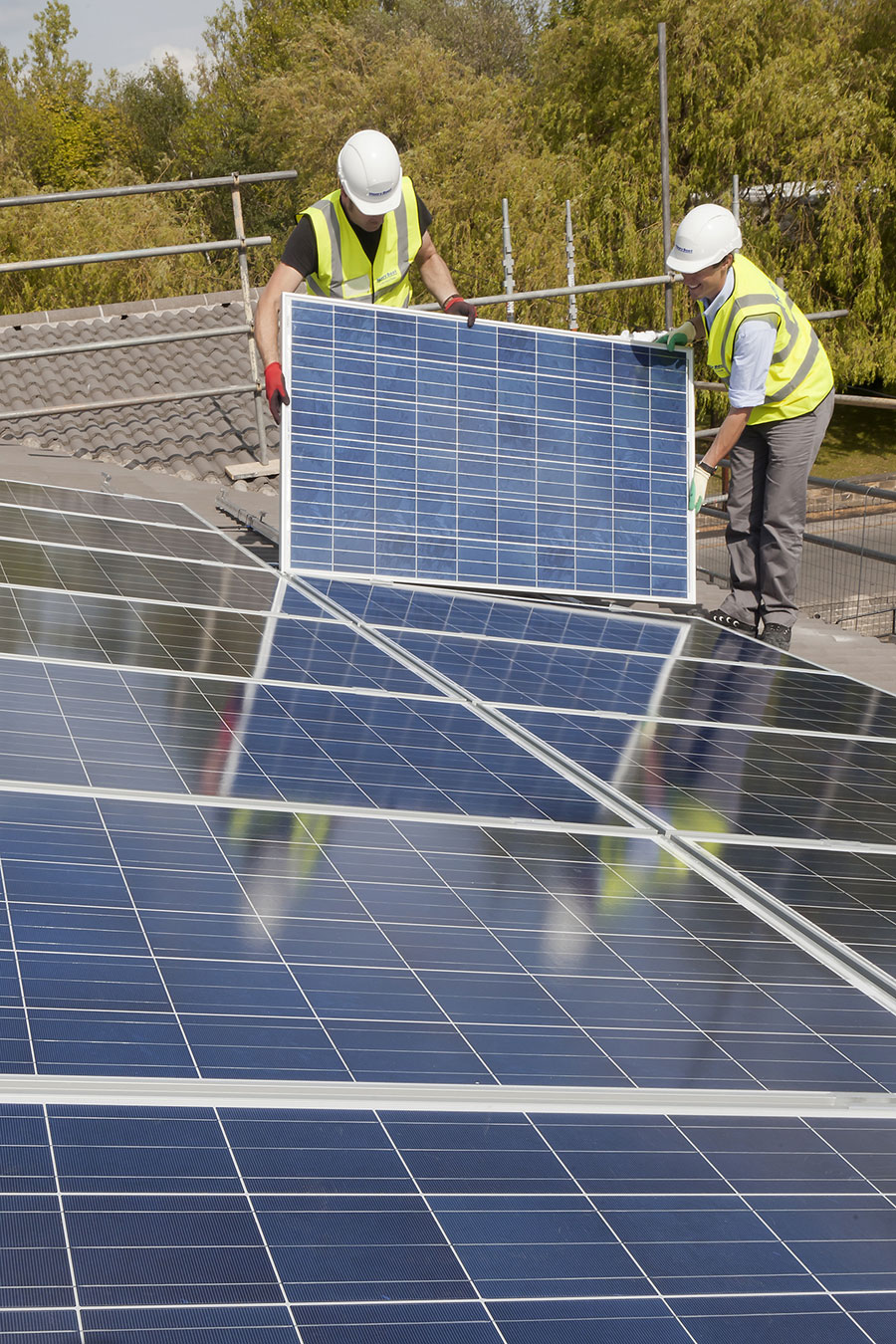Henry Boot Construction continues to reduce its carbon footprint and be more energy efficient, whilst experiencing an increase in recent business activity.
The Dronfield-based company has assessed its energy usage following a review from independent environmental consultancy Ecus Ltd.
The findings relate to the company’s gas and electricity use for their Dronfield headquarters and regional office in Manchester, along with fuel consumption in vehicles during 2012.
Henry Boot’s CO2e, or carbon dioxide equivalent, emissions are now at 1,005tonnes, a 37 per cent reduction on 2008 levels. The report calculated that the company produced 16 tonnes of CO2e per £million of its turnover, a reduction of 23 per cent compared with the four years previously.
The figures are the lowest levels for the company over the period between 2008 and 2012 when previous annual carbon footprint calculations were also taken.
Gareth Cunliffe, senior consultant at Ecus Ltd, said: “This has been achieved alongside an increase in business activity, evidenced by increased turnover on 2011, and clearly demonstrates an increase in efficiency at Henry Boot Construction.”
Emissions from Henry Boot Construction vehicles currently stand at 855 tonnes showing a reduction of around 37 per cent on 2008 levels.
Gareth added: “Vehicle emissions correlate with the wider economic picture and the current decrease relates to emissions from company vehicles. Gas is used at both locations for heating and therefore can be weather dependent.
“Henry Boot’s trend of electricity use is also down. This result show a fall in emissions at the Dronfield head office, while emissions from the Manchester office remain relatively steady.
“The general reduction has been helped by the installation of rooftop photovoltaic panels to the Dronfield site during 2011. The results in the 2012 reporting year provide the first full 12 months of operation of the system.”
Richard Grafton, head of management services at Henry Boot Construction, added: “We are pleased to see an overall reduction in the company’s carbon footprint and an improvement in energy efficiency.
“This is the culmination of a lot of hard work from employees across two locations and investment from Henry Boot Construction to bring the company in-line with more sustainable levels of consumption.
“As an organisation which operates nationally, energy consumption can have an impact on overall costs, profitability and ultimately the environment. It’s therefore vital to ensure we are as efficient as possible to provide the best possible service to our customers while reducing unnecessary negative impact.”
The carbon footprint assessment created by Ecus did not account for emissions related to refrigeration, water supply and treatment, material use, waste disposal, business travel (other than by motor vehicle) or freighting goods, however it could be extended to these areas in the future.
Ecus, which has offices in Sheffield, Cheltenham, Stirling and Basingstoke, offers a range of services to clients including environmental impact assessment, ecology, landscape, heritage, geoscience and environmental management.
Established in 1986, Ecus is a spin-out company from the University of Sheffield and now employs more than 40 staff and is planning additional recruitment and offices in 2014.



















